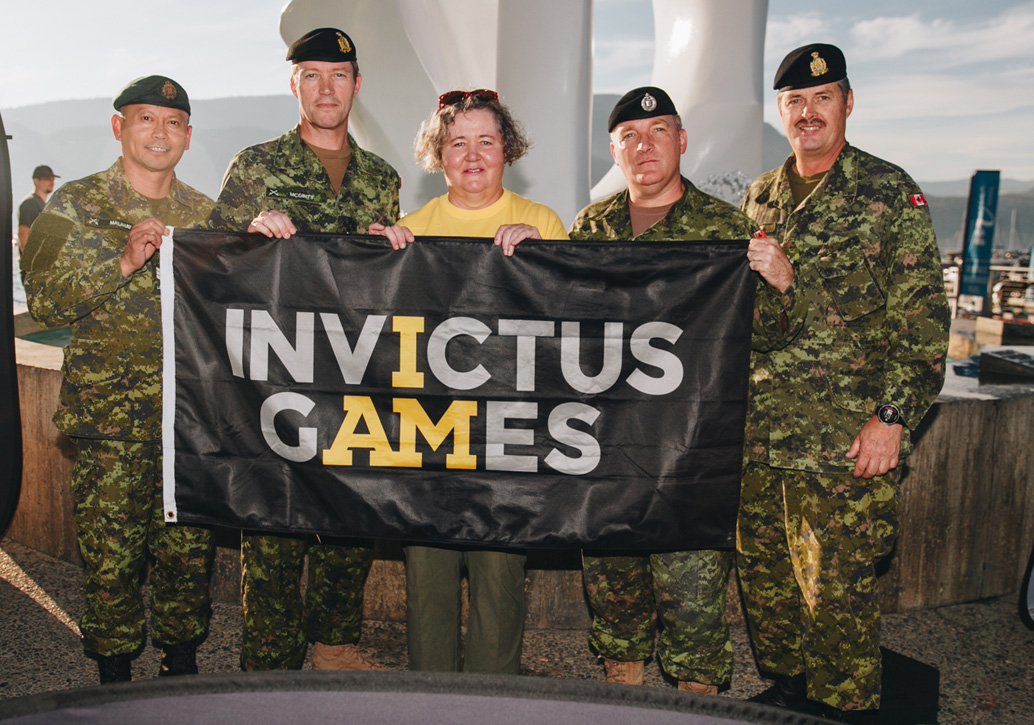Unconquered but poorly supported
By Cameron Graham, PhD
Hot on the heels of the successful 2015 Parapan Am Games, Toronto will be hosting another international parasports event in 2017. The Invictus Games, founded by Prince Harry, is an ambitious multisport event for injured armed forces veterans from around the world. The Games celebrate athletic prowess and the capabilities of people with disabilities, while drawing our attention to the lasting effects of armed conflict on soldiers.
The Invictus Games will come to Canada at a time when our government’s treatment of injured veterans has been under scrutiny. In November 2014, the Auditor General drew national attention to the lack of mental health services for veterans. In May 2015, The Globe and Mail reported that pensions and benefits for injured Canadian soldiers fall far short of those in other countries. In January 2016, the National Defence and Canadian Forces Ombudsman said the system providing services to injured veterans was overburdened and understaffed, and in need of major changes. According to retired general Rick Hillier, “many of our young men and women have lost confidence in our country to support them” (The Tyee, 19 August 2015).
It’s not just the money that matters here. Injured veterans can face tremendous social and psychological barriers as they try to get their lives back on track. Depression is widespread and suicide rates are high. Many veterans, therefore, particularly those with complex psychological disabilities, require long-term support.
Yet the federal government, in a bill conceived by the previous Liberal government and then enacted by the Conservative government in 2006, eliminated lifetime pensions for injured veterans and replaced them with a lump-sum payment. A lump-sum payment, in contrast to a lifetime pension, allows the government to end its relationship with the veteran. This is highly inappropriate when many veterans encounter the symptoms of post-traumatic stress disorder over time, and often have difficulty proving that their psychological problems are the result of their horrific experiences in the armed forces.
Happily, the current Chief of the Defence Staff and the current Liberal government have recognized that changes are needed. Indeed, the government allocated $5.6 billion to create better programs and services for injured veterans in its February 2016 budget. The lifetime pension, however, has not yet been reinstated.
The announcement of the 2017 Invictus Games by Prince Harry, with Prime Minister Trudeau and many celebrated Paralympic athletes in attendance, is promising and timely. The Games will draw our attention to the unconquerable spirit of many injured veterans. “Invictus,” after all, means “unconquered.” Those who compete will remind the world that there is life after injury. These are important success stories. But what about veterans who are not so unbowed, who are dealing with depression and wondering what the future holds for them? Will the Invictus Games momentarily distract us, or will they lead to long-term improvements in support for all veterans, including those with hidden disabilities?
Athletic events tell us about success, but they also tell us about failure. I remember sitting in the stands at the Parapan Am Games when fellow Canadian Abilities Foundation board member Joel Dembe played wheelchair tennis. Joel’s victory that day, alongside his doubles partner Philippe Bédard, was a superb demonstration of what human beings with or without disabilities can accomplish if they dedicate themselves to the pursuit of excellence. However, for me, Joel’s grace in defeat in the following round said more about his character than his victory did.
How Canada responds to the Invictus Games will tell us a lot about our own character. We can decide to focus only on the most accomplished veterans, the ones who make us feel good about ourselves. Or, we can see the bigger picture. I believe that Canadians will be able to keep two seemingly contradictory thoughts in tension that injured veterans are capable of tremendous accomplishments, and that many are nonetheless in need of tremendous support. When we are cheering on the competitors at the Invictus Games, let’s remember the veterans who cannot participate. Let’s push for a lasting commitment to all our veterans with disabilities. See you at the Games!
On behalf of the Board,
Cameron Graham, PhD
Chair, Canadian Abilities Foundation














